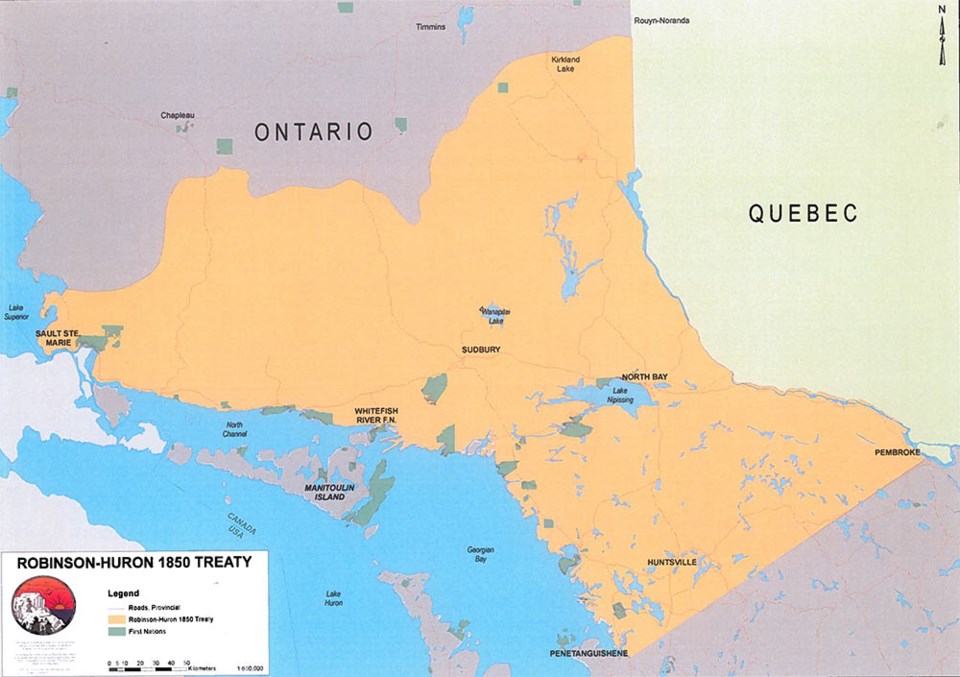A group representing the rights and interests of Anishinabek in Robinson Huron Treaty territory is challenging the Métis Nation of Ontario on the historical existence of distinct Métis communities within its territory and is calling on Canada to "cease all action" relating to a Métis self-governance agreement its signed with the political body earlier this year.
In a news release issued Monday, Robinson Huron Waawiindamaagewin (RHW) revealed it had commissioned a study led by Dr. Celeste Pedri-Spade of McGill University and Dr. Darryl Leroux at the University of Ottawa to delve into the evidence of historic Métis communities.
The end result — a report entitled An Exploratory Study of Métis Nation of Ontario’s ‘Historic Métis Communities’ in Robinson-Huron Treaty Territory — asserts the Métis Nation of Ontario (MNO) used "poor research practices” to omit historical data that calls into question its interpretation of verified Métis family lines.
The report commissioned by RHW claims the MNO has had a history of misidentifying Anishinaabe people as Métis in its own head counts within the treaty territory, which counts 21 First Nations among the signatories to the 1850 treaty.
“The report has documented hundreds of times that the MNO engaged in such misleading practices, proving the fatal flaws in creating ‘Métis communities’ in Robinson Huron Treaty territory,” the release said.
RHW is also pushing back on the signing of the Métis Government Recognition and Self-Government Implementation Agreement with the federal government in February.
“The settler government of Canada and the MNO are attempting to push legislation through which will culminate with the signing of a 'modern-day treaty' that will encroach upon the rights of RHW and its citizens,” said Batchewana First Nation Chief Dean Sayers in the release. “This fast-tracked push is an affront to the unextinguished rights and jurisdictions of RHW.
“We cannot sit idly by while the settler government continues to discuss and deal with groups claiming indigenous ancestry without our consent.”
RHW is also backing Wabun Tribal Council’s application for a judicial review of the MNO’s self-governance agreement, which claims the agreement with Canada “recognizes communities that may be unable to pass the Métis rights test established by Canada’s Supreme Court in R. v. Powley.”
“Canada must cease this practice and directly deal with the original rights holders of this land,” the release said.
